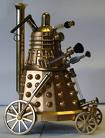Why 2041? Three places to look.
In a Newsweek article there was mention of batteries improving 8% per year.
In a wiki supercaptior article : "For comparison, a conventional lead-acid battery is typically 30 to 40 W·h/kg and modern lithium-ion batteries are about 120 W·h/kg. In automobile applications gasoline has a net calorific value (NCV) of around 12,000 W·h/kg, which operates at 20% tank-to-wheel efficiency giving an effective energy density of 2,400 W·h/kg."
That means we need something about 20 times better than lithium-ion batteries.
At 8% it take about 40 years to get 20 times better.
Using the wiki lithium-ion article Litihium-ion was proposed in the 1970s and the first commercial version was made in 1991.
Adding 40 years to that gives you "miracle battery/capacitor" was proposed in 2010s and the first commercial version was made in 2041.
Things could happen quicker or slower but it represents the leap we have to take to get there. This is where hybrids and smaller vehicles fill the gap.
Also remember when someone is saying replace transport fuels with electric you have to consider what is being replaced. If you replace gasoline with a all electric vehicle run off coal, coal only has to provide 20% of the energy the gasoline did. Adding in electric transmission loss and electric engine loss use about 25%.
In the future where hybrids are the majority the comparison may be 40% tank-to-wheel efficiency which would make the coal need to provide 45% of gasoline. At that point you begin to get into the area where there is more CO2 generated by the coal. Then again cars will never have a on-board method of capturing CO2 where with coal it is possible.
Wednesday, November 26, 2008
Subscribe to:
Post Comments (Atom)






No comments:
Post a Comment